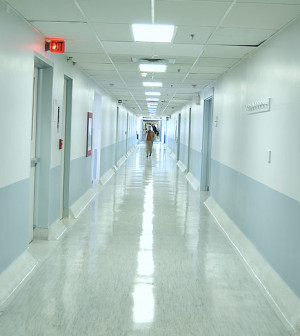- Could Your Grocery Store Meat Be Causing Recurring UTIs?
- Are You Making This Expensive Thermostat Error This Winter?
- Recognizing the Signs of Hypothyroidism
- 10 Strategies to Overcome Insomnia
- Could Artificial Sweeteners Be Aging the Brain Faster?
- Techniques for Soothing Your Nervous System
- Does the Water in Your House Smell Funny? Here’s Why
- Can a Daily Dose of Apple Cider Vinegar Actually Aid Weight Loss?
- 6 Health Beverages That Can Actually Spike Your Blood Sugar
- Treatment Options for Social Anxiety Disorder
Health Highlights: Nov. 23, 2016

Here are some of the latest health and medical news developments, compiled by the editors of HealthDay:
No Active Zika Transmission in North Miami Beach: CDC
The North Miami Beach area is not longer classified as an area of active Zika virus transmission, the U.S. Centers for Disease Control and Prevention said Tuesday.
There have been no new cases of local Zika transmission in the area for more than 45 days, which suggests that the risk of infection there is no longer higher than in the rest of Miami-Dade County.
South Miami Beach will remain classified as an area of active Zika virus transmission (red zone) until 45 days pass without new cases, the CDC said.
“At this time, we are removing the red zone from North Miami Beach area but continuing the red zone for South Miami Beach. This means that we still advise pregnant women not to travel to the red zone in South Miami Beach,” CDC Director Dr. Tom Frieden said in an agency news release.
“Furthermore, people living in or visiting Miami-Dade County, including Miami Beach, particularly pregnant women, are still encouraged to continue to take steps to prevent mosquito bites and to follow guidelines for preventing sexual transmission. We cannot let down our guard,” he added.
As of November 16, there had been 4,255 cases of Zika reported in the continental United States and Hawaii, included 139 locally transmitted mosquito-borne cases in Florida, 35 cases believed to be caused by sexual transmission, and one case that was the result of a laboratory exposure, according to the CDC.
Copyright © 2026 HealthDay. All rights reserved.










